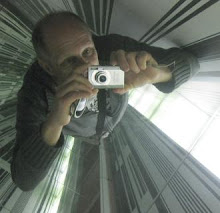Last weekend I was at the Festival of Chariots, and got talking to someone there. After asking what I did, she said "ah, you have a scientific brain; you don't believe in what you can't see".
That's not the case at all; if anything, science reminds us of the limitations of what we can see, and scientific rigor suggests we can't make authoritative claims on what we can't see - including claims as to whether or not such things exist.
In fact, only one of our senses works off-planet, and that is sensitive to a very narrow spectrum of photon energies. Much of what we currently "see", is visualized via artificial methods, i.e. sensory equipment and arbitrary interpretive processing.

2 comments:
Yeah - even Einstein said that imagination was more important than knowledge - if he ever actually said that.
I like "things should be made as simple as possible, but no simpler"... attributed to him as I recall, and befitting his extension of Newtonian mechanics via relativity.
I apply that maxim to software safety; I think "open" is dangerously over-simplified and would prefer "run", "edit" and "view" to give some sense of the level of risk you are taking.
It's been pointed out that "communism" (by which is meant the notion of a flat rewardscape combined with coercive motivation) is likely to fail because it only ensures workers will do the least that prevents them being punished.
But it goes further; you can only coerce people to give you what you know they have. Any original ideas they have, you don't know about, and thus cannot force them to express, share, or use.
Post a Comment